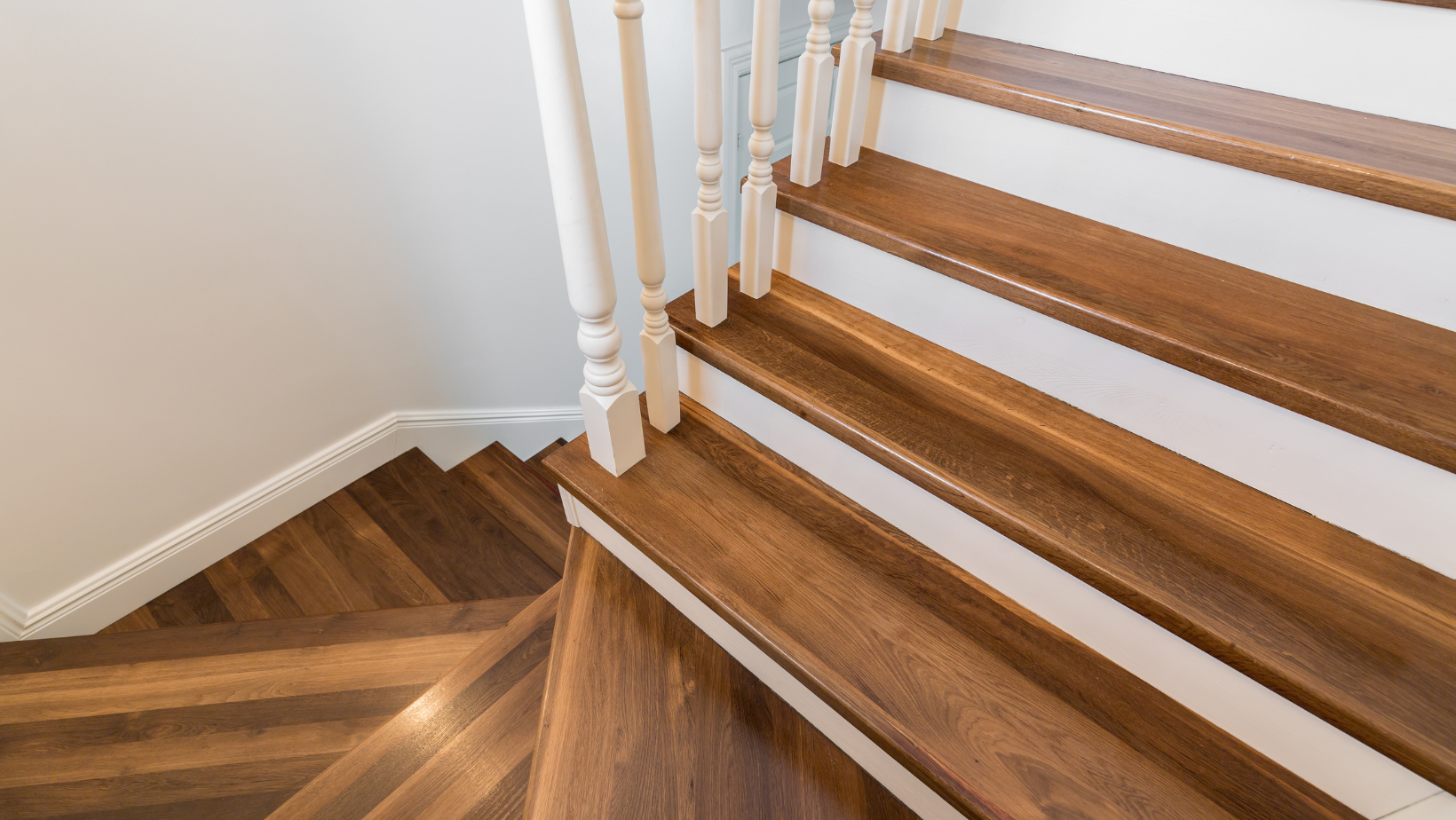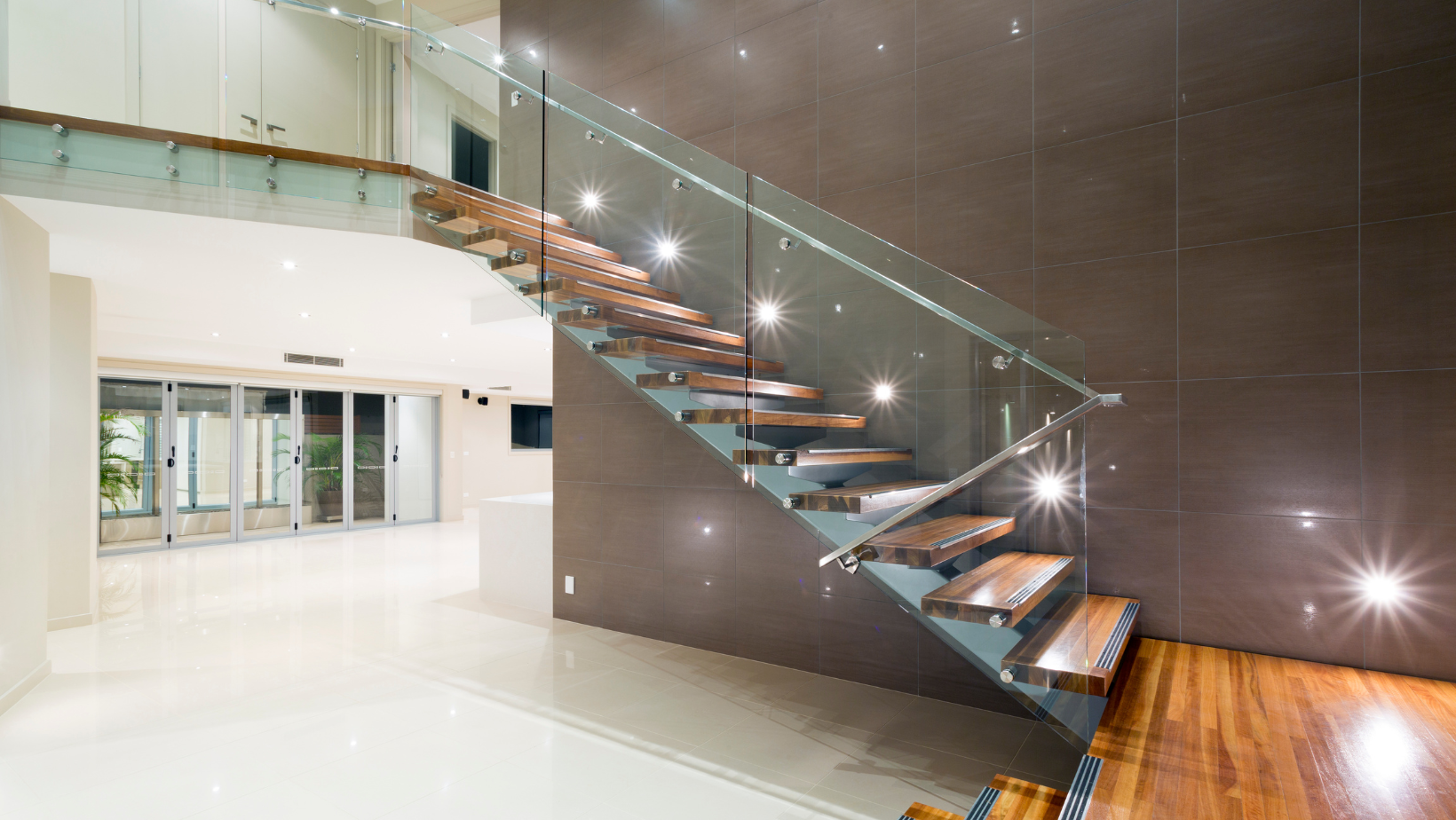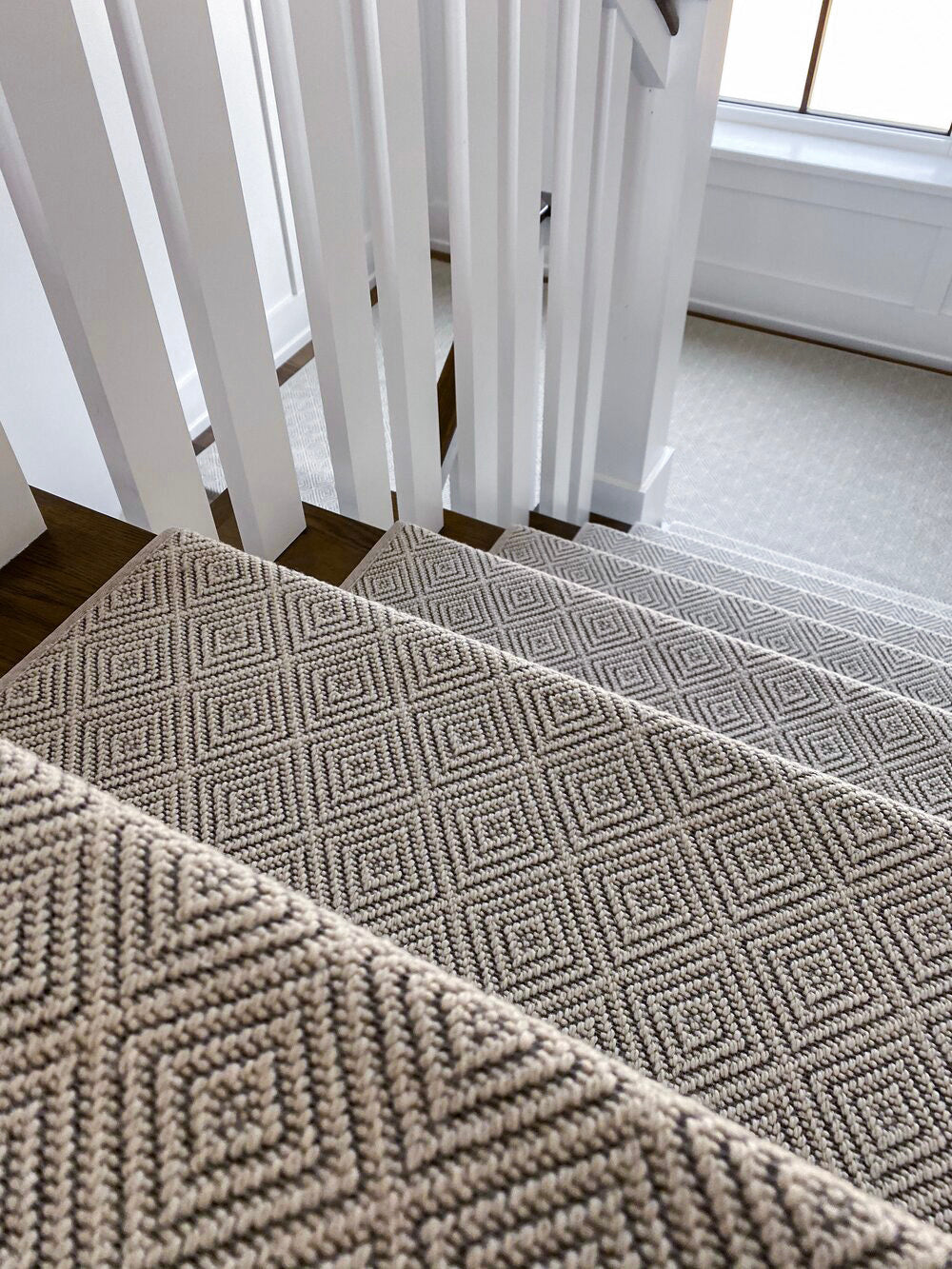Slips on outdoor stairs happen fast—and they’re often preventable with the right tools.
The best solutions for slippery outdoor wooden stairs include adding traction with durable materials like carpet stair treads, rubber treads, or metal grip plates.
This guide shows you exactly how to choose, install, and maintain these safety upgrades for long-term protection.
You’ll learn what causes outdoor wood stairs to become slippery, which materials work best in various conditions, and how to install each solution.
Whether you're a homeowner or property manager, you’ll walk away with actionable steps to improve safety without sacrificing style.
Let’s get started on making your outdoor stairs safer—one step at a time.
What Makes Wooden Outdoor Stairs So Slippery?
Outdoor stairs deal with every element nature throws at them: rain, frost, snow, leaves, and heavy foot traffic.
Each one contributes to worn wood, buildup, or moisture—causing slippery conditions that can worsen over time.
Understanding the root cause helps you choose the right solution.
Moisture Creates Dangerous Conditions
Rain and morning dew collect on untreated wood, creating a thin, nearly invisible layer of water.
That surface becomes slippery fast, especially if your stairs are shaded or flat.
When water lingers, it can also lead to mold, mildew, or algae—turning your steps into a slick trap.
Debris Builds Up Over Time
Leaves, dirt, pollen, and even bugs collect on outdoor stairs, especially in the fall or spring.
As these materials break down or get wet, they form a slimy film that’s easy to miss and dangerous to step on.
Even daily foot traffic can grind in dirt, reducing traction on already-slick surfaces.
Wood Wears Down Naturally
Over time, wooden stairs lose their texture and grit.
Painted or sealed stairs can become glossy, and unsealed wood becomes smooth with age and weather.
Many homeowners ask, are oak stairs slippery?
Oak is one of the better woods for grip—it’s dense, tough, and less likely to become slick than softer woods.
Still, even oak will become slippery if it’s not maintained or if it’s constantly exposed to moisture and debris.
Why Addressing Slippery Stairs Matters
Slips may seem minor at first, but they can have serious consequences.
Whether you’re a homeowner or managing a property, safety should never be an afterthought.
Prevent Injuries at Home
One slip could mean a broken wrist, sprained ankle, or something far more serious.
For families with small kids, elderly parents, or pets, safe stairs are non-negotiable.
Outdoor safety is just as important as what’s inside your home.
Avoid Legal Liability as a Property Manager
If you manage a rental or public building, slippery stairs are a liability risk.
A single injury can lead to legal action, medical costs, or property insurance claims.
Proactive maintenance and visible safety upgrades reduce your exposure to these risks.
Best Solutions for Slippery Outdoor Wooden Stairs
There are several simple ways to improve the safety of outdoor stairs without replacing them completely.
Each of the following options offers real traction, quick installation, and lasting results.
1. Add Carpet Stair Treads
One of the most popular solutions for slippery outdoor wooden stairs is installing carpet stair treads.
They’re comfortable, attractive, and highly effective for traction.
Many styles are made for outdoor use, with materials that resist moisture, UV rays, and daily wear.
How to Install Carpet Stair Treads:
Clean the surface of the stair thoroughly with a broom or damp cloth.
Use a peel-and-stick adhesive or exterior caulk to attach each tread securely.
Press them firmly in place, then let them set before stepping on them.
Why Carpet Stair Treads Work:
They add a layer of soft texture that grips shoes and bare feet.
They come in colors and patterns that upgrade your curb appeal.
They’re easy to clean—just vacuum or rinse with water—and simple to replace if one wears out.
2. Use Rubber Treads for Heavy-Duty Grip
Rubber stair treads are made to stand up to tough conditions and heavy foot traffic.
They offer high traction, even in wet or icy conditions.
Rubber’s natural grip makes it one of the most effective choices for safety.
Installing Rubber Stair Treads:
Start with a clean, dry stair surface.
Use an outdoor adhesive or purchase treads with built-in adhesive backing.
Follow the installation instructions for your product and make sure they’re level and secure.
Why Rubber Works So Well:
It’s slip-resistant by design, even in freezing weather.
Rubber handles wear better than other materials and lasts for years.
It’s also low-maintenance—just hose it off or wipe with mild soap as needed.
3. Install Metal Treads for Maximum Durability
Metal stair treads—especially aluminum diamond plate—are rugged and reliable.
They provide long-lasting grip and a sleek, modern look for your outdoor stairs.
They’re ideal for homes in wet climates or locations with high foot traffic.
Installing Metal Treads:
Use screws or bolts to anchor the treads to each step.
For wood stairs, pre-drilling the holes will prevent splitting.
Some homeowners choose to have them professionally installed for best alignment.
Why Choose Metal Treads:
They last the longest and handle all kinds of weather.
The textured surface offers excellent traction even when wet or dirty.
They can be painted or coated to match your exterior design.
Additional Ways to Improve Outdoor Stair Safety
Beyond stair treads, here are a few more options to improve the safety and function of your steps.
These tips work especially well when used in combination with one of the main solutions above.
Apply Anti-Slip Paint or Grit Tape
Anti-slip paint contains fine grit that gives the surface texture and traction.
It’s ideal for homes that want a clean look without separate treads.
Grit tape is another option—it's simple to apply and effective for moderate use.
Improve Lighting Around Your Stairs
Dark steps make it easier to misjudge your footing and trip.
Install outdoor-rated motion sensor lights or low-voltage stair lighting for better visibility.
Safer steps are easier to use when you can actually see them.
Sweep Regularly and Clear Blocked Drains
Keep the steps free of leaves, twigs, or standing water by sweeping once or twice a week.
If water pools around the stairs, check your gutters and ground slope.
Drainage problems often lead to slippery surfaces and long-term damage.
Common Questions About Wood Stair Safety
If you’re still unsure which solution is right for your home, here are answers to the most common concerns.
Do I need to replace my stairs?
No. Most slippery wood stairs can be made safe without replacement. Carpet stair treads, rubber, or metal upgrades are affordable and effective.
Can I use indoor treads outside?
Only if they’re labeled for outdoor use. Indoor treads will absorb water and break down over time.
Which is best for families with pets?
Carpet stair treads offer the softest feel and are gentle on paws. They also help muffle sound from running or jumping.
What if I live in a snowy climate?
Go for rubber or metal. Both handle moisture and freezing temperatures better than fabric-based materials.
Steps To Success
Keeping your stairs safe doesn't have to be costly, complicated, or time-consuming.
The right solutions for slippery outdoor wooden stairs are often small changes with big impact.
Whether you're drawn to the comfort of carpet stair treads, the toughness of rubber, or the durability of metal, there’s an option that fits your home, climate, and lifestyle.
At Oak Valley Designs, we’ve helped thousands of families and property managers create safer, more beautiful staircases.
We’ll help you choose the product that fits your vision—and your budget.
Let’s make every step feel safe, stylish, and slip-free.
Make Your Outdoor Stairs Safer Today
Ready to put an end to slips, falls, and safety concerns?
Explore our range of outdoor-friendly carpet stair treads, rubber, and metal solutions—each designed for easy DIY installation and long-lasting traction.
Let Oak Valley Designs help you find the right fit for your home or property.
-
Website: https://oakvalleydesigns.com/
-
Phone: 706.331.0315
-
Email: info@oakvalleydesigns.com
-
Address: 30 River Ct SW Bldg E Cartersville, Ga 30120




